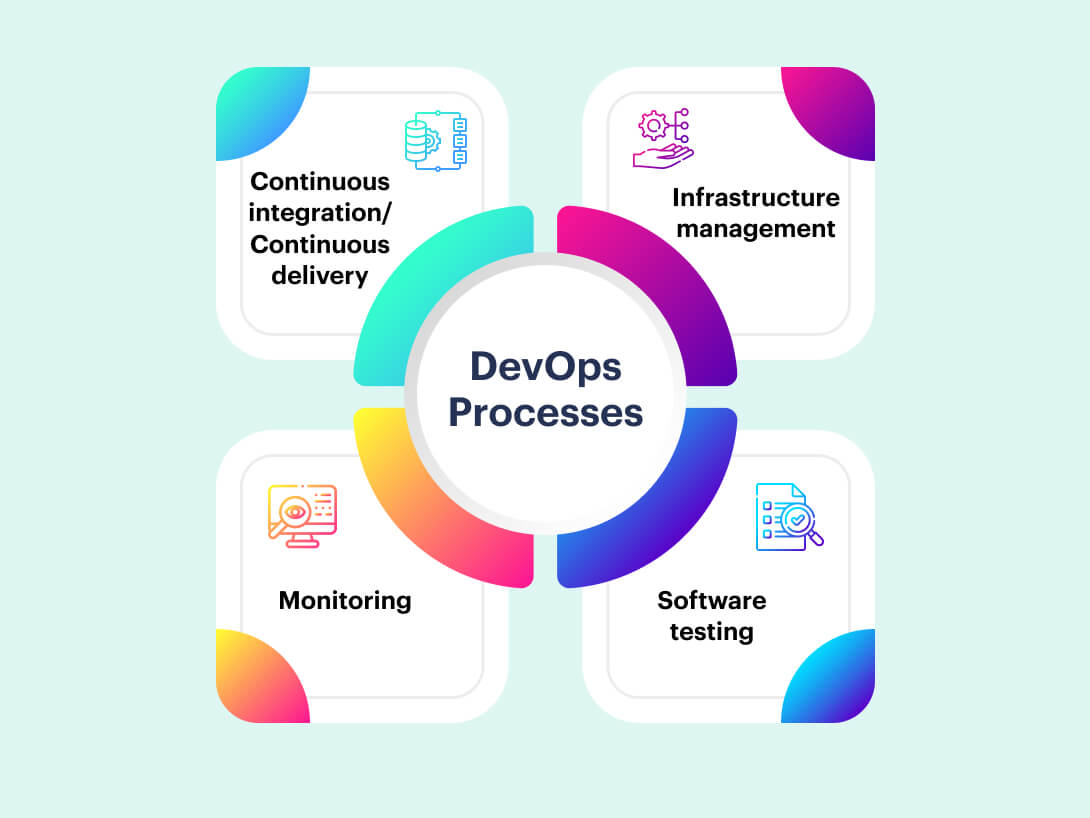The technology sector is witnessing rapid growth today. The software development industry is under constant pressure to cater to the growing customer expectations for business applications. Nevertheless, these expectations typically involve performance improvement, functionality extension, guaranteed availability, and uptime. The typical software development process has evolved with the advent of cloud-based applications. The present paradigm considers developing the software as a continuous service rather than simply creating software for a specific requirement as per the customer’s business.
The software development has transformed from a monolithic structure to an agile network that allows developers to continuously make changes in the software to meet the customers’ evolving needs. However, making these changes on a regular basis is a time-consuming and redundant process. Moreover, these updates must be developed, tested, and constantly monitored to cater to the specification of the user’s environment. This is where DevOps automation comes in handy.
What is DevOps automation?
As per the definition, DevOps automation is automating repetitive manual tasks without human intervention. In the DevOps lifecycle, automation applies to development, design, deployment, release, and monitoring processes. The main goal of automation in DevOps is to streamline the DevOps lifecycle while reducing the manual workload for the developers. As a result of DevOps automation, the developers can leverage improvements such as eliminating the need for a large team, reducing human errors, and enhancing productivity.
Expand your business with our offshore resources
How does DevOps automation work?
According to several top leaders, DevOps automation is experiencing a massive outgrowth and works the same way as Agile. Similar to Agile, DevOps allows the software developers to work in close collaborations with customers, product management teams, and quality analysis personnel to fill in the gaps and rapidly iterate towards better product development. As a result, from this perspective, DevOps is an improved extension of Agile principles beyond the boundaries of the code.
Automation plays a vital role in accomplishing work efficiency. When automation is adopted, it can lay the foundation of scaling and standardizing automation across the entire organization. However, where there is automation, there have to be tools. These tools are heavily relied upon to automate large parts of the development, operations, and deployment process.
How does DevOps automation help organizations?
DevOps automation can provide consistency over repetitive tasks with the help of reliable automation tools while removing the threat of human errors. It can increase the team’s speed from code integration to final product deployment to the end-users environment. Moreover, DevOps automation can also create a much more reliable and stable system with the help of improved collaboration. Additionally, with automation in DevOps, organizations can also reduce the errors caused due to miscommunication between teams.
What are the benefits of DevOps automation?

DevOps automation plays a vital role in the development of an organization. It allows the development and operation teams to collaborate and deliver quality products. It also provides several benefits to the developers. Let’s look at some of these benefits:
Consistency
Software applications are prone to errors and bugs as humans code them. However, DevOps automation allows the development teams to identify these errors. With the help of automation tools in DevOps, the development teams can ensure the consistency of the final product. The developers can streamline the DevOps best practices with automation and ensure the final product delivers consistent results whenever needed.
Scalability
DevOps automated practices are far easier to scale than manual processes. Nevertheless, DevOps automation tools allow the developers to scale operations in any given environment. Today with the advent of cloud-based applications, the only constrain for scaling of a process is the availability of the software and hardware, which is not an issue in an automated environment. DevOps automation also allows the developers to share the resources and workloads, further improving the scalability of the final product.
Speed
One of the significant benefits that DevOps automation offers to developers is the speed of development and deployment. It provides the developers with the ability to go through the lifecycle stages swiftly and has a significant effect on the delivery of the project. The automated DevOps process will be executed regardless of the time or team member. This is because DevOps automation eliminates the task’s manual triggering, allowing the developers to go through the entire process without any delays.
Flexibility
DevOps automation allows the developers to be flexible in terms of the automated process’s scope and functionality. Most of the time, the only constraint of the functionality and scope is the configuration of the process. Changing the configuration is more straightforward than training the team member to adapt to the changes in the entire process.
Which DevOps processes should be automated?

The most simple answer to the above question is Everything! Yes, automation applies to every process in DevOps.
However, which process is to be automated depends on two external factors:
- Original Requirements
- Technological Feasibility
An efficient DevOps team will choose the processes that should be automated in their DevOps lifecycle. Below are some standard processes that can leverage DevOps automation:
Continuous integration/Continuous delivery (CI/CD)
As per the core concepts and automation tools governing agile software development, CI/CD is the primary practice for automation implementation in any organization. DevOps automation can help developers code commits deploying packaged applications in relevant testing/production environments and builds.
Infrastructure management
Managing infrastructure such as servers and networks requires substantial time and resources. DevOps automation allows seamless infrastructure management by creating software-defined infrastructure. This will enable developers to manipulate the infrastructure with minimal human interactions.
Software testing
Software testing is the best place to apply DevOps automation. Utilizing test automation tools allows developers to conduct tests of any kind on any platform. It becomes more accessible for the developers to make simpler unit tests, efficient UI tests, and quality smoke tests.
Monitoring
Rapid changes mean it is nearly impossible to keep track of components and modifications. Automation helps by enabling the DevOps team to create monitoring rules and generate alerts to keep track of infrastructure availability, performance, and security issues.
Conclusion
DevOps automation allows developers to overcome the challenges of redundancy and repetitive tasks, ensuring the quality and productivity of the product. Connect with us if you want to implement DevOps automation in your organization.









